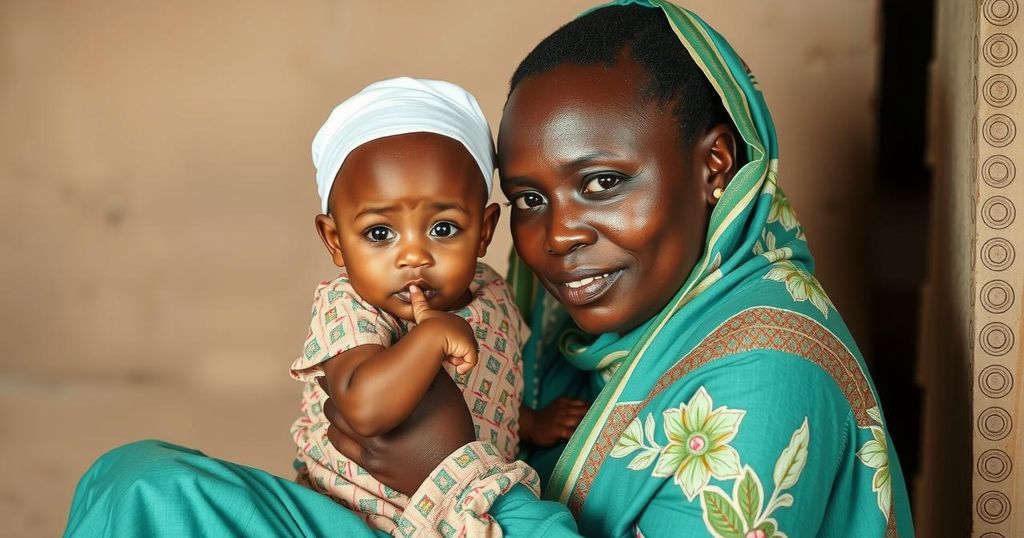Hajiya A’ishatu’s experience highlights Nigeria’s efforts to combat high maternal and child mortality rates. Government initiatives, supported by the GFF and World Bank, focus on enhancing primary health care services and adolescent health. While progress has been made, significant challenges remain, necessitating ongoing commitment to improve health service accessibility and funding.
Hajiya A’ishatu resides in the outskirts of Tudun-Wada city, Gombe State, Nigeria, where she operates a home-based shop. She fondly recalls giving birth to her children at the Tudun Wada Primary Health Care Facility, expressing gratitude for the care provided by health professionals, which has enabled her children to grow up healthy. Her experience mirrors a nationwide effort to enhance maternal and child health services, particularly in underserved areas, as Nigeria grapples with alarmingly high maternal and child mortality rates, accounting for a significant portion of global figures.
The Nigerian government has initiated the Basic Health Care Provision Fund, channeling resources to improve primary health services throughout the country. This initiative, supported by the Global Financing Facility for Women, Children and Adolescents (GFF), has been piloted in three states and aims to bolster health infrastructure, enhancing approximately 900 primary health care facilities with essential services. This includes free deliveries, pregnancy-related medications, and support for midwives serving remote communities.
Moreover, the GFF and World Bank have worked through the Nigeria State Health Investment Project to support communities in conflict-affected areas of Northeastern Nigeria, notably increasing safe deliveries from 22% to 68% between 2014 and 2020. Such improvements have also led to a three-fold increase in childhood immunizations, reaching 1 million children annually. Additionally, adolescent health has gained attention; efforts in Kaduna State have empowered adolescent girls with essential family planning information and nutritional guidance.
Maternal and child mortality remains a critical issue in Nigeria, which holds one of the world’s highest rates of both. The government, in partnership with international organizations, has recognized the urgent need to improve access to quality healthcare services. The introduction of the Basic Health Care Provision Fund reflects a systemic approach to addressing health disparities, particularly in areas with limited resources. With added emphasis on adolescent health, Nigeria aims to ensure comprehensive health education and equitable access to health services for all its citizens.
Despite significant advances in maternal and child health initiatives, Nigeria must address ongoing challenges, including inadequate funding, staff shortages, and accessibility issues. The government’s commitment to revitalizing health services is promising. Future success hinges on continued collaboration with development partners and an unwavering resolve to prioritize health for women, children, and adolescents, ultimately reducing preventable deaths and improving life quality in Nigeria.
Original Source: www.worldbank.org






